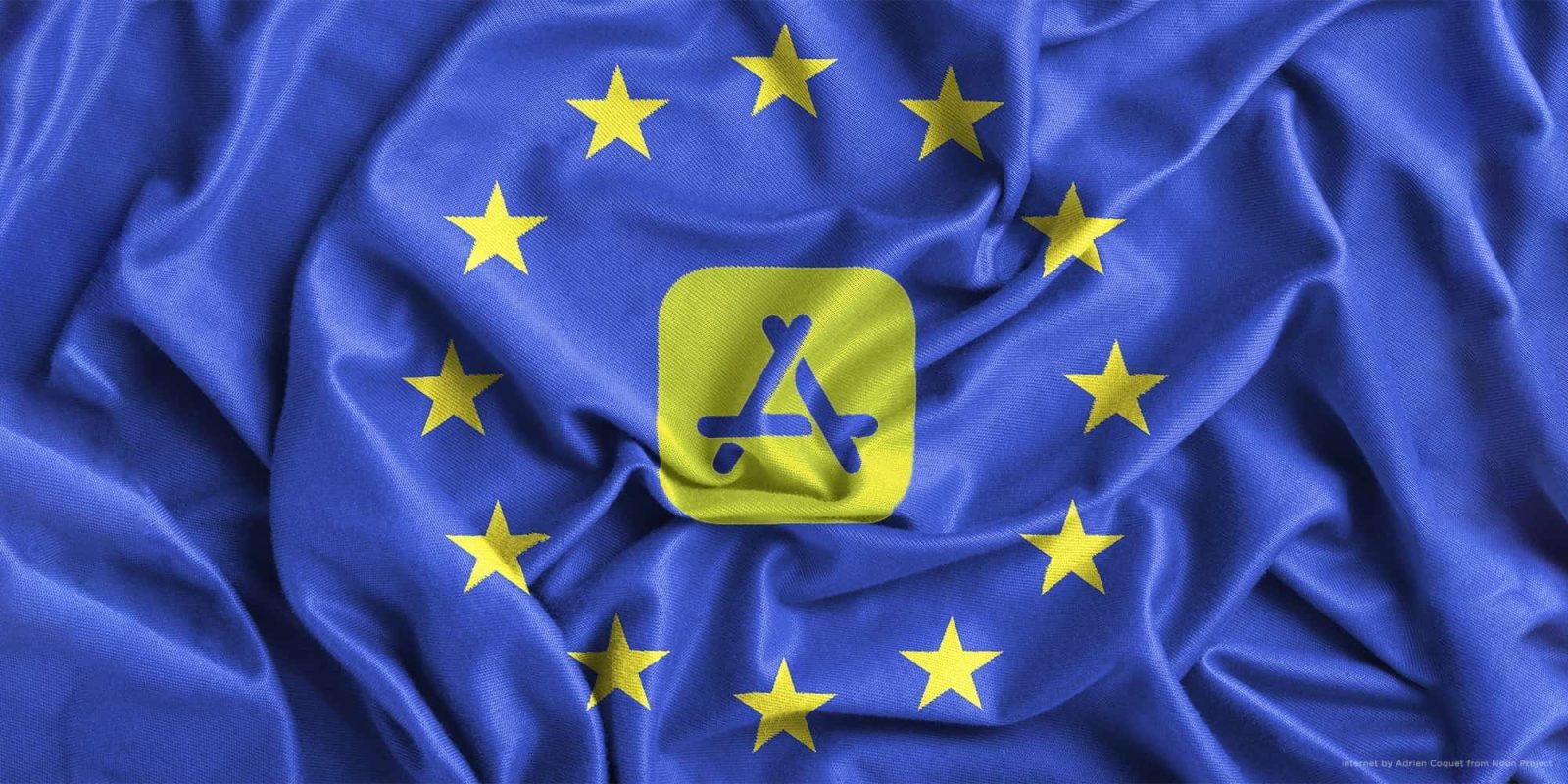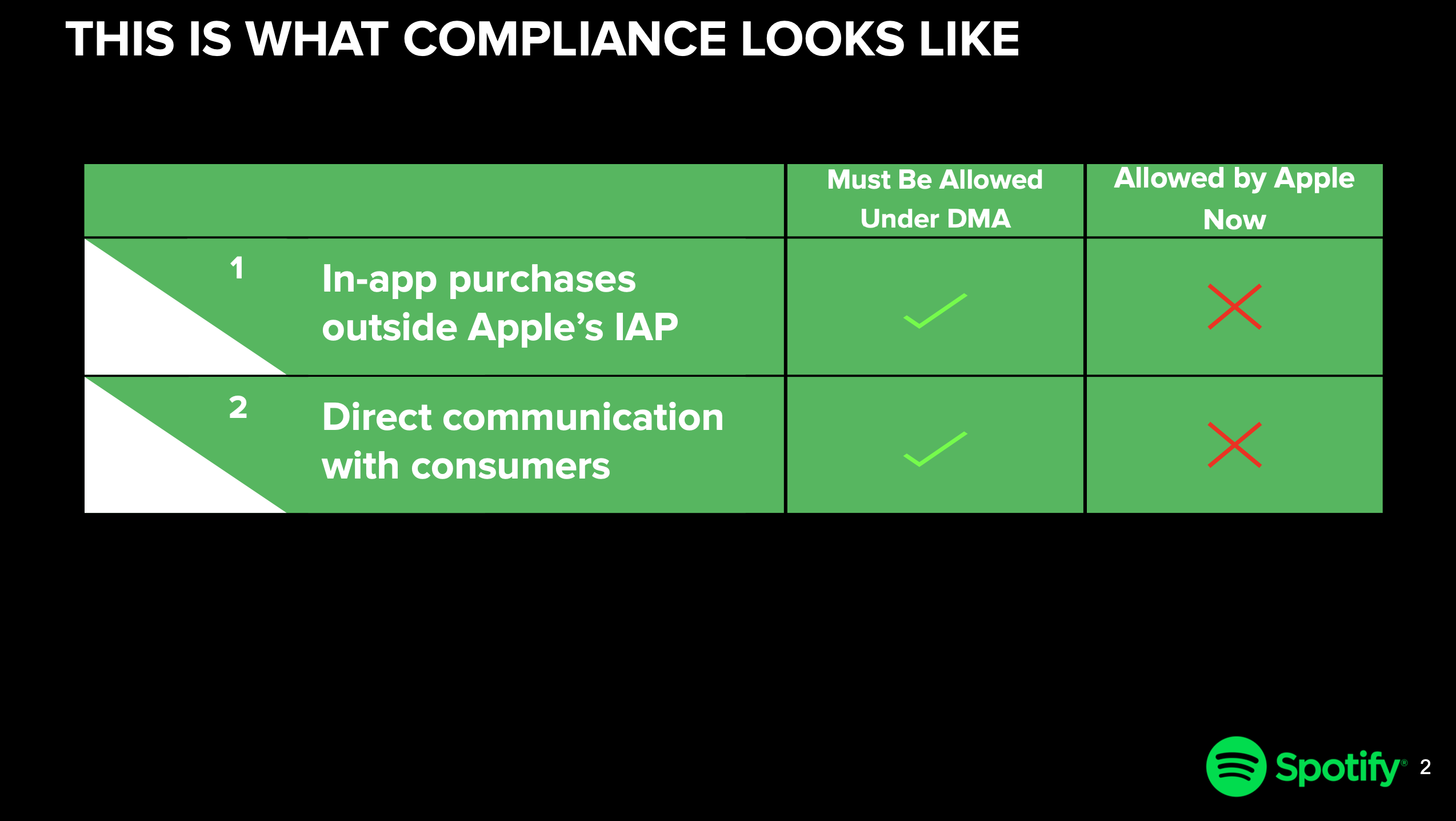
As European Union officials work on the implementation of the Digital Markets Act (DMA) that formally went into effect last fall, a stakeholder workshop was held today by the European Commission to get input on “app store related provisions.” Spotify was one of the panelists and it shared three changes it feels Apple must be forced to make in the EU.
Spotify’s Director of Global Competition Policy, Gene Burrus spoke on the European Commission’s panel today specially on the topic of “Giving choice to app developers: how to implement the rules relating to in-app payment systems, steering and consumption-only apps?”
With regard to those issues, Spotify’s Burrus called out two key changes that it believes the DMA must force Apple into compliance on:
- Allow an alternative option for in-app purchases on iOS
- Allow developers/companies to have direct communication with consumers

Spotify is basing that conclusion of this declaration in the DMA:
The gatekeeper shall not require end users to use, or business users to use, to offer, or to interoperate with, an identification service, a web browser engine or a payment service, or technical services that support the provision of payment services, such as payment systems for in-app purchases, of that gatekeeper in the context of services provided by the business users using that gatekeeper’s core platform services.
Those two changes would solve the issues that Spotify has with – in it’s words – the 30% “Apple tax” and “Apple’s suppression.”
And another action Spotify would like the European Commission to take with the DMA is to “prevent Apple from favoring its own Services.”
This one would be trickier than the former as Spotify would like to see the DMA regulate how Apple operates its App Store such as changes to the process of how it approves app updates from third parties.
Apple’s take
Another part of the DMA may force Apple to open up iOS to third-party app stores.
Apple had a representative at the stakeholder workshop who spoke on the topic of “Fostering contestability: Web based apps, sideloading and alternative app stores – compliance models.”
No surprise, Apple’s stance hasn’t changed here. It believes its closed App Store model is the best approach for security and privacy.
But Apple acknowledged at the European Commission event that it will have a legal obligation to comply with the Digital Markets Act.
Meanwhile, Spotify and others shared their contrasting belief that Apple doesn’t have exclusivity in offering security and privacy to customers. And that it’s better for everyone to encourage more competition.
FTC: We use income earning auto affiliate links. More.





